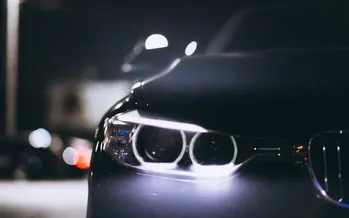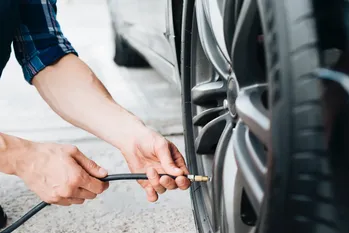Benefits of buying an expensive car
Increased prestige and social status
The primary benefit that comes with owning a luxury vehicle is increased prestige and social status. A high-end automobile serves as a visible symbol of wealth, success, and taste. It communicates to others that the owner has achieved a certain level of financial and professional accomplishment. This can lead to respect and admiration from peers, colleagues, and potential business partners.
Enhanced comfort and convenience
In addition to its social benefits, an expensive car offers enhanced comfort and convenience for its passengers. Luxury vehicles are equipped with advanced technology, premium materials, and spacious interiors that provide a level of comfort and convenience that is not found in cheaper alternatives. For example, some models come with features such as heated and ventilated seats, massage functions, and customizable climate control settings. These amenities can make long journeys more comfortable and enjoyable for both the driver and passengers.
Improved safety and reliability
Another benefit of owning an expensive car is improved safety and reliability. High-end automobiles often boast superior engineering, which results in better crash protection and fewer mechanical problems over time. This can translate into a safer driving experience for the owner and lower maintenance costs in the long run. In addition, many luxury vehicles come with advanced driver assistance systems that help to prevent accidents and reduce insurance premiums.
Higher resale value
One final benefit of buying an expensive car is higher resale value. While the initial cost may be steep, high-end automobiles tend to hold their value better than cheaper alternatives over time. This can make them a wise investment for those who prioritize long-term financial gain. In contrast, less expensive cars often depreciate rapidly, making them a poor choice for buyers who plan to sell the vehicle in a few years.
Drawbacks of buying an expensive car
High purchase price
The most obvious drawback of buying an expensive car is its high purchase price. Luxury vehicles can cost twice or three times as much as their more affordable counterparts, which puts them out of reach for many buyers. This can make it difficult to justify the expense, particularly if the owner does not have a significant income or a strong financial cushion.
Higher operating costs
In addition to its high purchase price, an expensive car may also have higher operating costs than cheaper alternatives. Luxury vehicles typically require premium fuel and more frequent maintenance, which can add up over time. In addition, insurance premiums for luxury cars tend to be higher due to their higher replacement value and greater likelihood of theft. This can make it more difficult to justify the expense of owning a high-end automobile.
Depreciation
Another drawback of buying an expensive car is depreciation. While luxury vehicles hold their value better than cheaper alternatives, they still lose a significant portion of their initial price over time. This can result in a significant financial loss for the owner if they choose to sell the vehicle or trade it in for a new one. In contrast, less expensive cars tend to depreciate more rapidly, which makes them a better choice for buyers who plan to own the vehicle for only a few years.
Alternatives to buying an expensive car
Used luxury vehicles
For buyers who are willing to consider used vehicles, there are many options available that offer similar benefits at lower prices. Used luxury cars may still provide enhanced comfort and convenience, improved safety and reliability, and higher resale value than cheaper alternatives. In addition, they may be significantly less expensive than buying a new vehicle outright. This can make it more affordable for buyers to enjoy the benefits of owning a high-end automobile without incurring the same level of financial risk.
Car-sharing services
Another alternative to buying an expensive car is using car-sharing services such as Zipcar or Turo. These services allow users to rent a luxury vehicle for a few hours or days at a significantly lower cost than purchasing one outright. This can be a great option for buyers who only need access to a high-end automobile on occasion, such as for special events or business meetings. In addition, it allows them to avoid the costs associated with owning and maintaining a luxury vehicle over time.
FAQ Section
Q: What are some alternatives to buying an expensive car?
A: There are several alternatives to buying an expensive car, depending on the buyer's needs and preferences. Some options include:
Used luxury vehicles: Instead of purchasing a new luxury car, buyers can consider purchasing a used one. This can offer many of the same benefits as a new car at a significantly lower price point. Used luxury cars may still provide enhanced comfort and convenience, improved safety and reliability, and higher resale value than cheaper alternatives.
Car-sharing services: For buyers who only need access to a luxury vehicle on occasion, using a car-sharing service like Zipcar or Turo can be a more affordable option. These services allow users to rent a luxury vehicle for a few hours or days at a significantly lower cost than purchasing one outright. This allows buyers to enjoy the benefits of owning a luxury vehicle without incurring the costs associated with owning and maintaining one over time.
Leasing: Instead of buying a new car, some buyers may prefer to lease their luxury vehicle instead. This can offer lower monthly payments than buying outright, as well as the flexibility to upgrade or switch cars more frequently. However, leasing also comes with its own set of costs and restrictions, such as mileage limits and penalty fees for early termination.
Public transportation: For buyers who primarily use a luxury car for commuting or short trips, relying on public transportation instead can be a more affordable option in the long run. This can save money on fuel, maintenance, and parking costs, allowing buyers to allocate those resources to other expenses or investments.
Ride-sharing: For buyers who only need occasional access to a luxury vehicle for special events or business meetings, using ride-sharing services like Uber or Lyft can be a more affordable option than owning and maintaining a car. This can also eliminate the stress and hassle of driving in unfamiliar locations or dealing with traffic and parking issues.
These alternatives offer different benefits and drawbacks, depending on the buyer's specific needs and circumstances. It's important for buyers to carefully consider their options and make an informed decision based on factors such as cost, convenience, lifestyle, and financial goals.
Q: How does the cost of fuel compare between luxury cars and mid-size sedans?
A: According to a report by the U.S. Department of Energy, luxury cars tend to have lower fuel efficiency than mid-size sedans. This can result in higher fuel costs for luxury car owners over time. For example:
The average annual fuel cost for a 2019 Audi R8 is $3,305, while the average annual fuel cost for a 2019 Honda Accord EX-L is $2,143. That's a difference of over $1,100 per year.
The average annual fuel cost for a 2019 BMW 7 Series is $3,653, while the average annual fuel cost for a 2019 Toyota Camry LE is $2,436. That's a difference of over $1,200 per year.
The average annual fuel cost for a 2019 Mercedes-Benz S560 is $3,875, while the average annual fuel cost for a 2019 Ford Fusion SE is $2,459. That's a difference of over $1,400 per year.
These numbers highlight the significant difference in fuel costs between luxury cars and mid-size sedans, which can impact the overall affordability and value proposition of owning a luxury car over time.
Q: How does the cost of insurance compare between luxury cars and mid-size sedans?
A: Luxury cars tend to have higher insurance premiums than mid-size sedans due to their higher replacement costs and increased risk of theft. According to a report by Carfax, luxury car owners can expect to pay an average of $2,637 per year for full coverage car insurance, while mid-size sedan owners pay an average of $1,540 per year. That's a difference of over $1,000 per year in insurance costs alone.
These numbers illustrate the significant impact that owning a luxury car can have on insurance premiums, which should be factored into the overall cost of ownership and budgeting considerations for buyers.
Q: How does the depreciation rate differ between luxury cars and mid-size sedans?
A: Luxury cars generally depreciate more quickly than mid-size sedans due to their higher price points, lower demand, and shorter production cycles. According to a report by Edmunds, the average luxury car loses over 50% of its value within three years of purchase, while the average mid-size sedan loses only around 40% of its value during that same time period.
This difference in depreciation rates can result in significant differences in resale value and overall cost of ownership for buyers. For example:
A 2019 Audi R8 with 36,000 miles on the odometer has a resale value of around $135,000, according to Edmunds. That's a depreciation rate of over 67% in just three years.
A 2019 Honda Accord EX-L with 36,000 miles on the odometer has a resale value of around $25,500, according to Edmunds. That's a depreciation rate of only around 48% in just three years.
These numbers illustrate the significant difference in depreciation rates between luxury cars and mid-size sedans, which can impact the overall value proposition of owning a luxury car over time.
Final thoughts
In conclusion, buying an expensive car offers many benefits, including increased prestige and social status, enhanced comfort and convenience, improved safety and reliability, and higher resale value. However, these benefits are offset by drawbacks such as high purchase price, higher operating costs, and depreciation. For buyers who are willing to consider used vehicles or car-sharing services, there may be more affordable alternatives available that offer similar benefits. Ultimately, the decision of whether or not to buy an expensive car will depend on a variety of factors, including the buyer's income, lifestyle, and financial goals.











